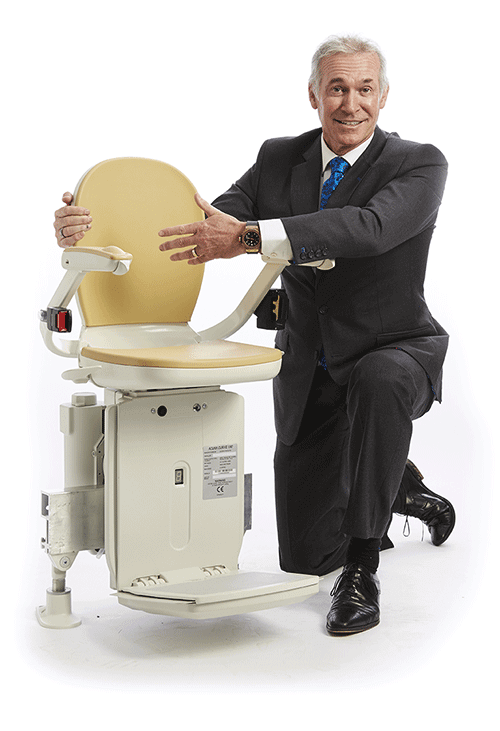Whether it pertains to stairlifts or not, when Acorn Stairlifts says that we care about our customers and their well-being, only wanting to give them the best, we mean it.
This also applies to our customers’ overall quality of life.
We want you to lead the healthiest, happiest, and most fulfilling lives possible. We want to see you succeed and reach new heights not only in mobility and independence but in all areas of their lives.
Without further ado, welcome back to “Acorn Stairlifts Tip of the Week,” a series in which we will equip seniors with all the knowledge, tools, and helpful advice that they need to succeed in their lives—ranging anywhere from physical health, to saving money with senior discounts, and just about everything in between.
Read on to learn how you can reap the maximum benefits of your prescriptions with proper medication management.
The Acorn Stairlifts Senior Tip of the Week
Make the most of your prescribed medications’ effectiveness by consistently following these essential medication management practices.
The truth is you may not be receiving the rewards and results from your medicine that you think you are.
From administering the correct dose, to timing the medications to avoid drug interactions, to remembering to take them at the same time every day, medication management can feel like one of the most difficult and high-pressure healthcare practices to master—Sometimes feeling just outright overwhelming.
However, with proper organisation, resources, knowledge, and prescription planning, medication management can become drastically less complicated and more manageable, allowing you to reap all of the benefits you were missing from your prescription medications.
What is Medication Adherence?
Maximising health benefits is not simply a matter of just taking your medicine—The manner in which medication is taken matters.
Medical adherence refers to a patient's consistent and accurate following of a prescribed healthcare regimen, which includes taking medications as instructed, following treatment plans, and adhering to lifestyle recommendations as advised by healthcare professionals.
It plays a critical role in the effectiveness of medical treatments, as well as in a patient’s overall health and well-being, ensuring that they are receiving the maximum benefit from their prescriptions.
According to the World Health Organisation, not only does medication adherence or have a direct impact on a patient’s treatment outcome but it can have a more direct impact on the patient’s health than the actual medication itself, affecting overall quality and length of life, health outcomes, and healthcare costs.
This is why non-adherence to medication can have such serious and dire consequences, significantly tampering with treatment effectiveness.
Why is Non-Adherence to Prescription Drugs so Detrimental to Your Overall Health?
Also reported by the World Health Organisation , a number of rigorous reviews reveal that in developed countries, adherence to long-term therapies in the general population is around an alarming 50 percent. This already concerning percentage only gets even lower in developing countries.
However, non-adherence to prescription drugs is highly detrimental to overall health because it compromises the effectiveness of medical treatments.
When individuals fail to take their prescribed medications as directed, it can result in uncontrolled medical conditions, allowing diseases to progress unchecked. This progression can lead to a higher risk of complications, more severe symptoms, increased hospitilisations, organ damage, and, in some cases, even death.
For example, non-adherence to medications for chronic conditions like hypertension or diabetes can increase the risk of heart attacks, strokes, or diabetic complications, which can be life-threatening.
Moreover, certain medications, such as antibiotics or treatments for acute infections, rely on precise dosing and timing to effectively combat pathogens. Non-adherence in such cases can lead to treatment failure, allowing infections to persist and potentially become more resistant to treatment, posing a significant risk to life.
In addition to the immediate health risks, non-adherence can also lead to increased healthcare costs, as uncontrolled health issues often require more extensive and costly interventions.
Ultimately, non-adherence can erode trust between patients and their healthcare providers, potentially leading to suboptimal care and even more missed opportunities for timely interventions.
5 Need-to-Know Medication Management Tips for Your Meds
1. Familiarise Yourself with Your Meds and the Manner in Which They Should Be Taken 
First and foremost, it is essential that you become an expert on each medication that you are taking so that you do not decrease drug effectiveness in any way, experience drug interactions, or even make a mistake that could possibly put your health or life in danger.
For this reason, it is important to research dosages, how often the meds should be taken, what the possible side effects are, and whether it has a negative reaction or is less effective when taken in combination with other drugs or substances.
You should also speak with the doctor who prescribed the medication to learn why the medication was prescribed in the first place, as well as precise instructions on how and when the medication should be taken.
Don’t be afraid or embarrassed to ask your doctor or pharmacist questions that provide you with more insightful details of the drugs such as whether it should be taken with food, if it interacts with another drug, when it should be taken to be most effective, how often it should be refilled, etc. Afterall, that’s what healthcare professionals are there for.
2. Plan Out a Solid Medication Schedule That You’ll Stick to
Once you are familiar with the medications and the manner in which you should take them, make a list of all of the drugs, along with all of the important information you collected from your research and prescriber.
Using that information, you can now make a personalised schedule of when each medication should be taken throughout the day that meets all of the guidelines you were given.
Be sure to make this schedule solid so that you’ll continue to stick to it.
3. Make Sure That Your Medicine Is Organised
Instead of tossing all of the identical-looking medicine bottles into one bulky medicine bag and calling it a day, try organising the medication in a way that is most efficient for your schedule and lifestyle.
When your medications are well-organised, you can easily keep track of doses, avoid accidental overdoses or missed doses, and reduce the risk of harmful drug interactions. It also helps you maintain a consistent medication routine, which is essential for managing chronic conditions and promoting better overall health.
For example, one effective way to organise your prescriptions is to use a pill organiser or medication dispenser with compartments for each day of the week or time of day. This makes it simple to see which medications you need to take and when.
Whether it’s separating bottles into separate medicine bins with labels, placing your pills in a strategic spot in plain sight so you’ll never forget to take them, or simply buying a medicine organiser, there are several options out there to help you start getting organised in whatever way works best for you.
4. Set Reminders for Yourself to Remember
One of the biggest issues that people have with medication management is forgetting to take it. However, there are several measures that you can take to prevent this from happening.
You can set both physical and electronic reminders for yourself so that you’ll always remember to take your medication.
For example, if you want to go the electronic route, you can set alarms or reminders on your phone or utilise helpful medication management apps to ensure you never miss a dose.
If you don’t consider yourself a “techspert” and want to go old school, grab yourself a pen and some good, old-fashioned sticky notes.
Write down several medication reminders for yourself, placing them strategically around your living space in places where you know you’ll see them such as on the bathroom mirror, the refrigerator, or next to the coffee machine.
By taking these precautions to ensure that you are taking every dose of your medication at the right time, you can drastically increase the effectiveness of your prescriptions and make managing medications much easier.
5. Keep Up the Consistency
Consistency is key. The more times we repeat something, the easier the task becomes.
While taking medication is one of those things in life that we don’t love to do, it is something that we must do for the sake of our own well-being. However, there are some tips and tricks that you can use to encourage yourself to take the medication and add enjoyment to your experience.
For example, you can wash down your pills with a glass of one of your favourite drinks that doesn’t interfere with the effectiveness of your medication.
If the pill is big and hard to swallow, your doctor or pharmacist can often offer other options for you to make the task of taking your medicine less taxing. There might be other versions of your medicine available or easier ways to administer the medication and still achieve the same results, so talk to a professional about possible solutions to the problem that would make your experience more enjoyable.
It may feel like a struggle sometimes to push yourself to do what’s best for your health by consistently taking your medications but above all else, remember this—Your health and well-being are absolutely worth it. YOU are worth it.

